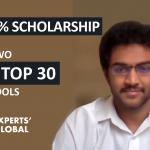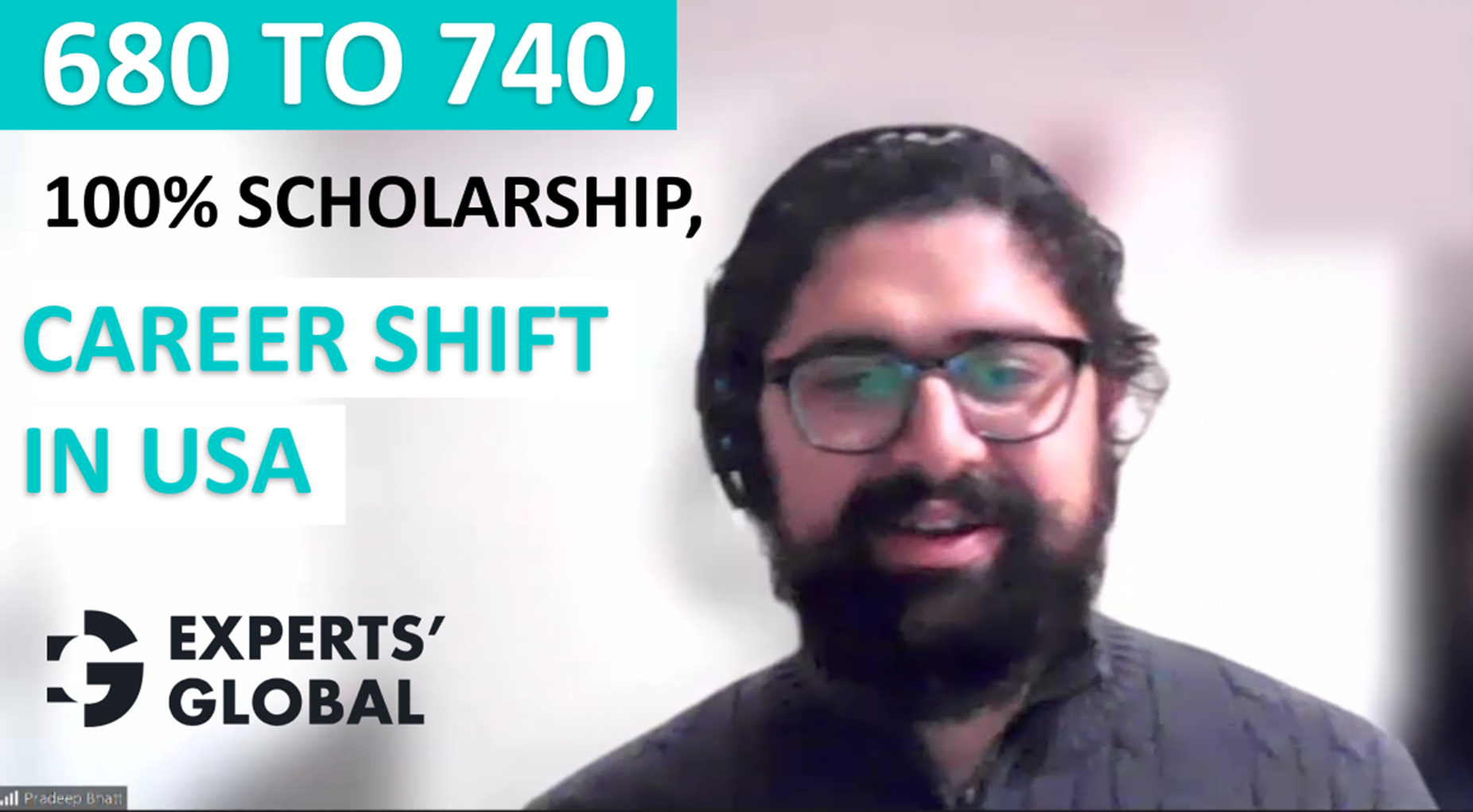Verbatim
Experts’ Global: Hi Karan, thank you for your time today! Could you kindly share your journey with us?
Karan: I completed undergrad studies in civil engineering and postgrad studies in structural engineering. Thereafter, with the help of MBA admissions consultants Experts’ Global, I realized my business school dream! I’m currently in the second year of my MBA specializing in operations and technology management at the University of Wisconsin-Madison. I just completed my summer internship with a leading financial services company in the US as an MBA summer associate and am set to convert the same to a full-time role.
Experts’ Global: In your opinion, what actions of yours made the difference in your success?
Karan: In my case, I started by trying to save time on my GMAT prep and enrolled in the Experts’ Global GMAT online course. The firm also helped me through the business school applications. After taking the GMAT, I spent some time reflecting on my motivations for an MBA.
Experts’ Global: With the benefit of hindsight, what mistakes did you make in the process?
Karan: Initially, I did not conduct enough research about the experience at the schools I was targeting to find the right match for my professional goals. For the first few applications, I just chose schools based on their rankings. Do your research, create a strategy for an essay, and curate all the thoughts in your profile according to the school’s specificities.
Experts’ Global: Regarding your GMAT preparation, what resources did you use and what advice do you have for other applicants?
Karan: The primary resources I used for my GMAT prep were those offered in the Experts’ Global GMAT prep program. The GMAT mocks included therein were quite useful. I also took help from the GMAT Club website and asked my peers for their guidance. As for advice, make sure to plan out your prep well, and shore up your weak conceptual areas before you take the GMAT.
Experts’ Global: What would you like to say about your experience with managing the application timeline?
Karan: Managing the timeline was quite tough. Every school has a different deadline date. Based on my experience, it is very important to divide your shortlisted schools based on priority, field research, and career goals. It is not advisable to submit 15 average applications in round one of the admissions process. Ideally, submit around five well-researched and thought-out applications in each round of the admission process that you engage with.
Experts’ Global: How was your MBA interview experience?
Karan: The Experts’ Global MBA interview prep program made things a whole lot easier. I was able to think of answers to commonly raised interview questions and take three or four mock interviews for feedback on how I could improve. The MBA interview is all about telling your story, and you can follow the STAR format to earn how to tell it. STAR stands for Situation, Task, Action, and Result. You can also add an L which stands for Lesson to make your story more impactful.
Experts’ Global: What can you tell us about your MBA experience?
Karan: The first semester of my MBA was conducted online fully, and things became more engaging as on-campus classes resumed. I advise MBA students to come prepared with a resume and a cover letter so that they can start applying for internships and jobs from day one of the program. In the US, there are also events called job conferences where applications can interact with representatives of companies and find relevant employment. These conferences are often held within a month of your arrival in the US and international students are frequently ill-prepared for them.
Make sure that you network well during the MBA, as the best thing about business school is the space it allows to build useful professional relationships. For MBA students looking for employment in the US, you can refer to The Two-Hour Job Search and The Power of Time, to get more of an idea of job searching criteria in the US.
Experts’ Global: How was your post-MBA job search?
Karan: In the US, most industries have different hiring periods. Consultancies hire generally in the fall semester, and tech companies generally hire in the spring semester. When I came to the US in the fall semester, I applied for consulting roles and went through interviews with consulting companies for my internship during the fall semester.
As we moved toward the spring semester, I started applying more for tech roles and profiles in financial services. I had multiple offers for my internship; for my full-time role, I took advice from my mentors and seniors about the path to take.
Experts’ Global: Can you tell us about how the pre-application and MBA journey continues to inspire your growth today?
Karan: The pre-application process definitely helped me improve my problem-solving skills and prepare me for job interviews, especially in the US. I used the STAR method I mentioned earlier for my MBA interviews, and it translated well to my job interviews as well. During my MBA, I have had the chance to build on my soft skills, technical skills, and even leadership skills. I was the vice president of the student council, and I found myself well-placed to learn from my peers in that position!
Experts’ Global: What mistakes would you advise other GMAT and MBA applicants to avoid?
Karan: My advice is to start prepping for your GMAT as soon as you can. Ask for help from peers who have taken the test, and use online forums to your advantage. Take as many free GMAT practice tests as you can. For your applications, reflect on your profile and honestly identify your achievements and failures. In your essays, make sure to keep a personal, authentic touch active.
Experts’ Global: Thank you for sharing your inspiring story with us, Karan!
Karan: It was my pleasure, and I hope my advice comes in handy!







